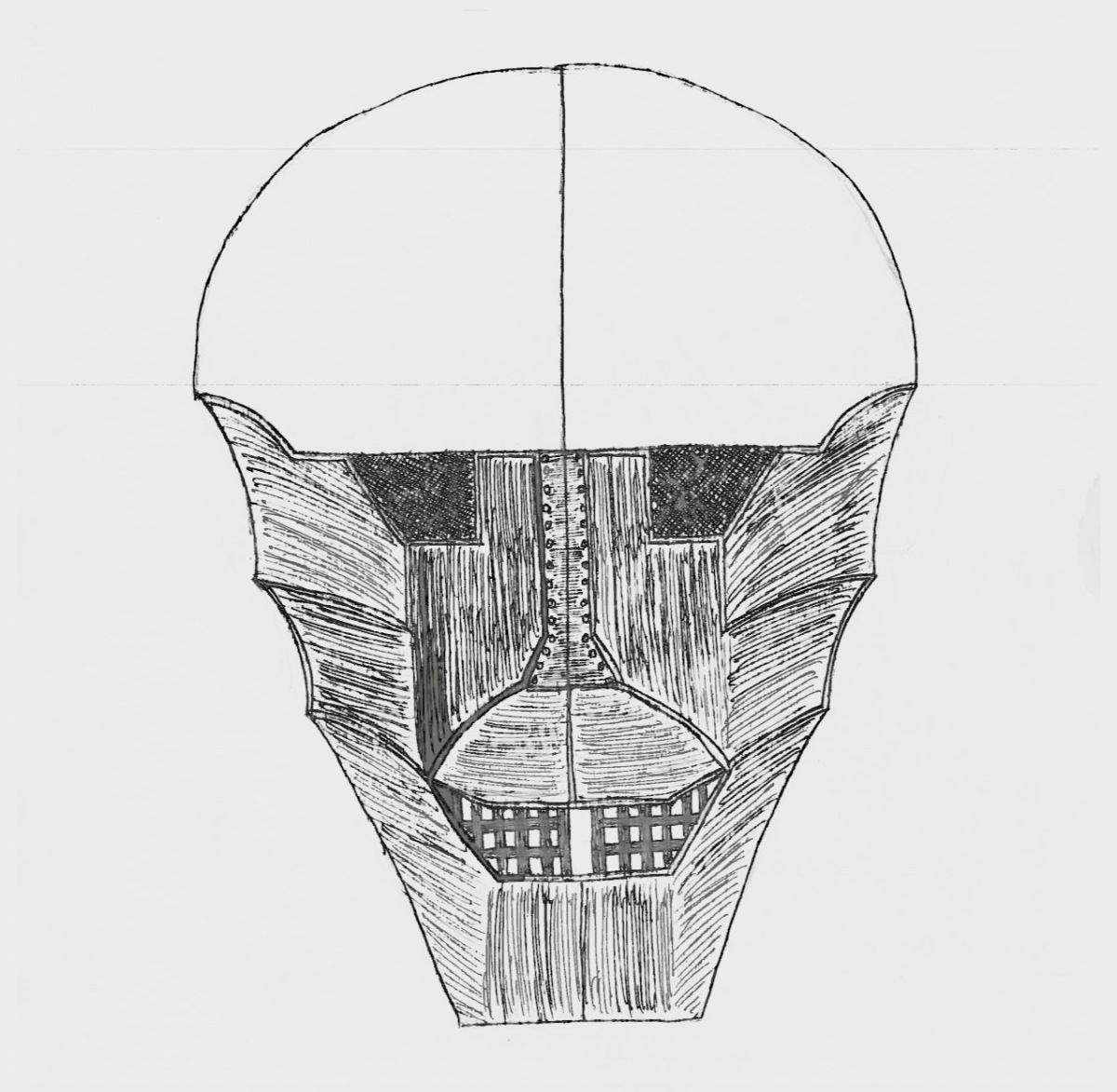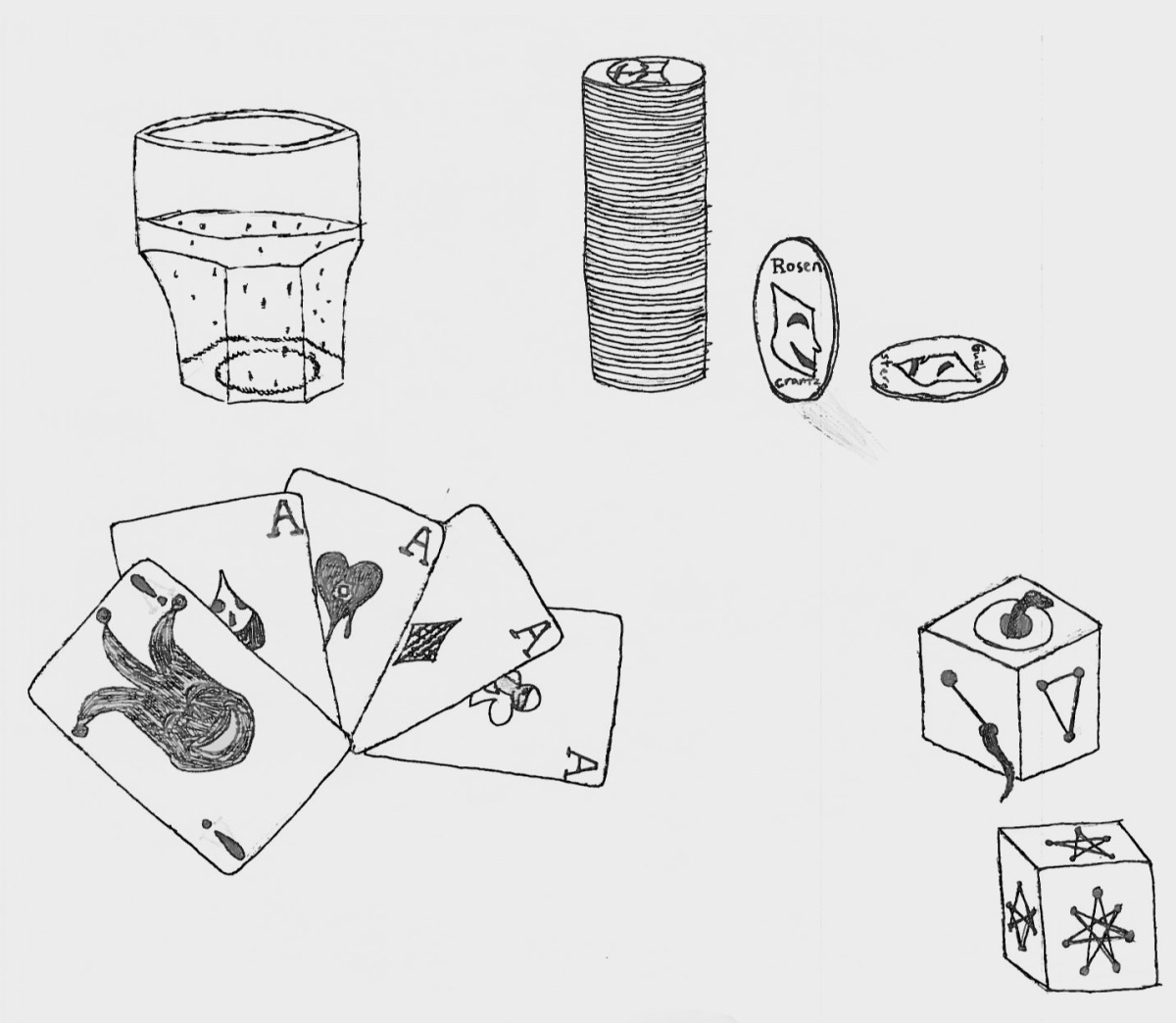“Lexi, don’t be cryptic. It’s rude and it leads the conversation.”
“Sorry. Still in the showman mood.”
“Well, get out of it. I’ve known you too long for you to fool me. Now what do you mean by ‘vision of the future?’”
What exactly do I mean? A dream of falling, desolation, and a parliament chamber barely constitutes a vision. And it wasn’t quite a dream, was it? There was an order, a logic. Different times, similar circumstances. Patterns underlying the idiosyncrasies, an influence at the edge of awareness. What did Valeria say? We fought hard for this day. Make sure we keep it.
“I was at the top of a tower,” I begin. “A man fell to a crowded plaza below. And then I was lying in the mud looking up at the sky, a voice calling my name.”
“That was a week ago. You collapsed after beating the driver. I had to carry you away.”
“And then I was giving a speech to a huge audience about a new nation, or a new government. We had just won a revolution.”
“We? Who’s we?”
“You and me, I think. You were there too, right at my side.”
Charlie chuckles. “I doubt that. I’m a backstage kinda guy. Keep the lights on and the wires hidden.”
So no ego to appeal to. Good to know.
“It wasn’t just you. There was a whole group of us. Two women, another man. And a whole freakin’ army of people just like us cogs.”
“And we overthrew the Regency?” Charlie crosses his arms. He’s much bonier now than later, clothes ill-fitting on a thin frame. “You and me and an army of cogs?”
“I guess so.”
“I guess no.” He flicks his head and we head back into the crowd, weaving a familiar path past familiar storefronts and advertisements.
“Noble Fashions at Base Prices!”
“BOGO Free! Finding the Fountain by Chief Regent Valens Arius Baculum!”
“LIVE with PURPOSE: CASH by Regency!”
Same sedimentary buildings, same wheeling and webbed streets and alleys. The setting sun paints the walls with fire. No graffiti though, and lots of people. Factory workers in gray and brown coveralls, drivers with color-coded suspenders and sleeve garters, Regency Security officers in deep purple uniforms and wolf head badges, merchants and barkers in whatever they found on hand. Sizzling sausages of mystery meat, fresh fruit concealing less-than-fresh fruit, bottled drinks of dubious origin. Ready-to-wear dresses billed as bespoke, jewelry with the oily patina of gilded pewter or painted quartz, eyeglasses that looked more likely to damage vision than correct it. And every so often, a ram-headed seal of approval from the Regency Commerce Department, ensuring quality and inflating prices.
After twenty minutes of wading through the throng, we enter Honor’s Quad. Surveying the square is a statue of a regal man in a dress uniform, shod in silver. His face is angular, but gentle. Laugh lines frame the corners of his eyes and a beard rounds the corners of his jaw. He holds a goblet in his right hand and a medal around his neck bears a pair of circling fish. The pedestal names him Honorus Piscus Calix.
“Blessed memory,” Charlie whispers as we pass the statue.
Premium Timepieces by Barnum has seen better days. Despite a RegComm seal of approval featured in the storefront and an attractive window display, no customers browse the aisles of wristwatches, pocket chains, and standing clocks. Barnum sits behind a glass-topped counter and nurses a tumbler of dark red liquor. We don’t enter through the front.
Charlie and I walk to the narrow alley alongside, and he retrieves an aluminum staff from a hideyhole behind a loose block. The staff is topped with a three-taloned grabber, and Charlie pulls down a ladder from the balcony above. We climb up and slip into the apartment.
I recognize the layout of the flat. What was the second-floor living room in the other times is the entire apartment in this one. A dangling lightbulb reveals a wood burning stove, ice box, slump sink, a small table with two chairs, a lockbox, and a single mattress on a makeshift boxspring.
How we got all this stuff up a ladder is beyond me. Then I see the trapdoor in one corner, large enough for the furnishings to pass through. Maybe it’s locked from the other side.
Charlie transfers produce from a backpack to the table. He takes a pair of glass tumblers from the sink, checks for cleanliness, seems satisfied, and retrieves a bottle of something alcoholic from the ice box. He pours a small amount into each glass. From one pocket, he takes a pill bottle with an ornate label edged in gold ink. FarReach. He takes a single round tablet and grinds it on a metal tray in the center of the table, then divides the crimson powder into two small piles. He mixes it with the liquor, swirling it around until the powder is dissolved and the liquid turns a deep gold color.
“To life, while we have it,” he toasts.
“To a better life, not yet arrived,” I reply. We swallow.
It burns less than I expected. Actually, it’s warm and soothing, with a deep sweetness like molasses. As the heat trickles down my throat, it stretches like a cat into my skull, shoulders, down to my fingertips, quivering its tail in my groin. I almost purr. Charlie doesn’t hold back.
“Now,” he breathes, “tell me more about this vision.”
I take a handful of coins from my pocket and spread them out on the table. “Things were different. From coins to clothing to this apartment. Even the city had a different name: Free Fortune.”
“Does different mean better?” He takes a coin, palm up, and it slowly rises into the air. His face starts to flush.
“Maybe. Better for us, in specific. Better for cogs in general. Honestly though, I didn’t get a great look at it.”
“Meaning, you’re not sure if it’s real?” The coin slowly turns in midair, head over tail. “Did it seem like a dream?”
“Too detailed to be a dream. Take the coins.” I do. “Different minting. An angel on one side, and some geometric pattern on the other.” I place it on edge, start it spinning. It winks in the light.
“An angel. Like an Angelfool? Do you think you’re one?”
“I don’t know.”
“I haven’t heard of one outing themselves in my lifetime. Not counting Ricimer, but he’s always been open. It would explain the visions.”
I draw my fingers together like I’m pulling a puppet string, and the spinning coin rises above the table, still winking. Charlie’s gaze and spinning coin match mine. Sparks dance between my fingers and the bits of metal.
“And it would explain that,” he nods. Then he leans back in his chair and his coin clatters to the table. “But Angelfool or not, you and I aren’t going to change anything. Fortuna’s been ‘Fair’ for a long time, and real change doesn’t happen in a week.”
“What about a year? Two? Seven?” I float more coins to make my point. “Plus, in one of the visions, I was a much better fighter than I am now.”
“That isn’t hard to imagine, Lexi.”
“But certain things match up. The lightning, this spring-whip thing. You.”
He furrows his brow. “How much fighting do you expect? Revolutions are violent, bloody. They tend to get out of control. The Silverfish have killed a lot of people, not all of them Regency drivers.”
“Then we’ll be careful. Plan it out, keep things quiet until we’re ready to strike.” I reach across the table and rest my hand on top of his. “But I need you with me to pull it off.”
He weighs risk and reward, weal and woe, boon and bane, drifting my coins in slow circles like moths around the bulb. Inhale, exhale.
“You do need me. To keep you on track and off the edge, if nothing else. I’m with you, Lexi. Now can we please leave the rest till morning?” He reaches up and clicks off the light.



